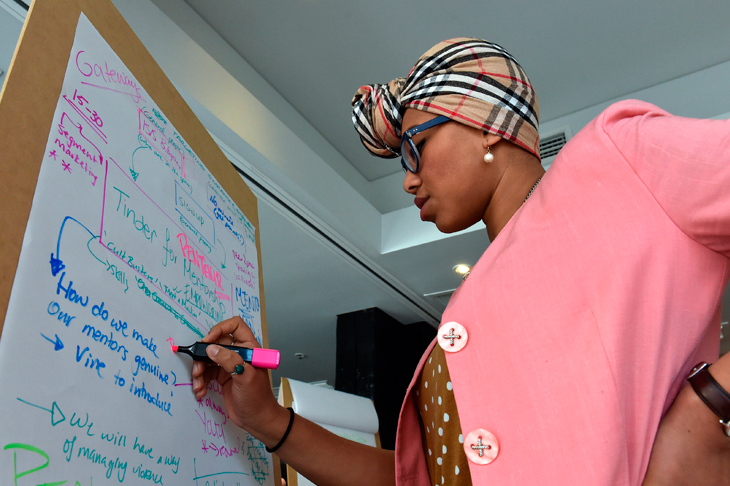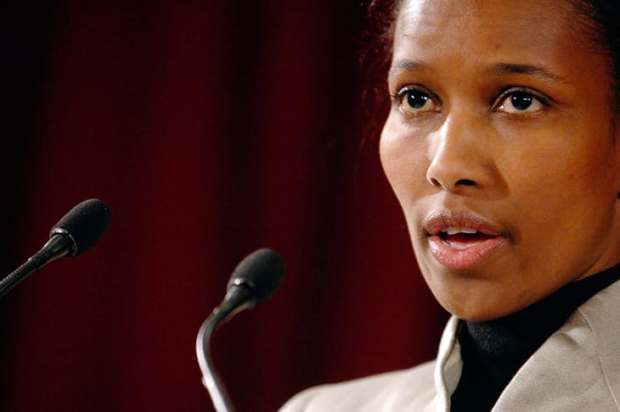Prior to the World Trade Centre attacks, no one would have cared that I was a Muslim. My ethnic heritage was paramount. My Bangladeshi birth meant I was part of the South Asian migrant grouping, similar to Indians, Pakistanis or Sri-Lankans. The religious identity of being Muslim was not especially interesting, unique or a political badge of any kind.
In the past decade and a half, it has of course mattered a great deal. It has become a central marker of difference with all manner of meanings and symbols. I found it interesting that in the ABC’s Q&A episode a couple of weeks back, when Yassmin Abdel-Magied had a histrionic spat with Jacqui Lambie, she said ‘For me, Islam is one of the most feminist religions.’ This has since been dissected at some length throughout the press. Yassmin has been appropriately ridiculed, including by Ayaan Hirsi Ali in the Australian who forensically illustrated the absurdity of her statement.
It is the ‘for me’ part of her statement that is particularly interesting. The preface is a great example of how Muslim identity becomes the pre-eminent marker of a new generation of Muslims growing up in the West. Their way of expressing themselves is highly Western in that it is all about their unique, individual selves. This is referred to as religiosity. It’s different to religion, which could be considered as a more coherent set of beliefs, managed by professional overseers of the knowledge.
Not unlike terrorists who use the trappings of modern technology and civic freedoms to conduct attacks, many Muslims co-opt the freedoms and privileges they enjoy in the West, but convince themselves such luxuries are also ‘Islamic’. This helps shield them from the foundations of the Enlightenment as the true source of their standard of living and allows them to maintain anti-Western stances couched in grievance. Their public utterances, while usually discreet, are windows into their ambivalent relationships with Western societies.
Meanwhile, like Yassmin, they can brush off the human rights abuses against women and minorities across the Muslim world as cultural stains not consistent with their own enlightened understanding of Islam.
The opposite is often the case. Local cultures, particularly the more distant they are from the Arab origins of Islam, are the best bulwark against the worst excesses of Islam. This is notably the case in countries like Turkey, Malaysia, Bangladesh or Indonesia. All of these countries are struggling to stand up to a resurgent, fundamentalist strain of Islam disdainful to the local culture.
In Turkey, Erdogan continues to dilute the secular foundations of the modern Turkish state. In Bangladesh, there has been a spate of Islamist killings of atheist bloggers. These, along with its worst terrorist attack, tarnish the secular, linguistic origins of its independence. In Indonesia, a Christian mayoral candidate is charged with blasphemy for otherwise trivial utterances in relation to the Koran.
In one of the best books about the origins of our current impasse on free speech and minority groups, British psychologist Kenan Malik has released a new edition of From Fatwa to Jihad: The Rushdie Affair and Its Legacy. Most of us think our current debates around Islam were sparked by the World Trade Centre attacks. But their true origins lie in the Rushdie affair. The fatwa imposed upon the celebrated Indian author primed many Muslims of every ethnic origin to identify as Muslims first and foremost. It also accelerated the progressive trend of treating the notion of respect for minority groups as sacrosanct. Thus the new blasphemy became offence, particularly to Muslims.
A key danger to our societies is when Muslims begin thinking of themselves as Muslims, first and foremost. In doing so, they can argue they are acting according to Islamic teachings, which urge Muslims to give precedence to the ummah, or the global Islamic community. They are also very much in keeping with trends in identity politics which allow them to seek privileges in the public space.
There has been a broad philosophy across the Western world in promoting moderate strains of Islam. Locally, this occurs through the positive discrimination of so-called moderate Muslims. But it is a reflection on how the culture − propagated by media outlets like Fairfax and the ABC − strayed well left of the mainstream. The key moderate voices of Islam all argue that Islam has nothing to do with terrorism, that racism and Western foreign policy are the roots of Islamic grievances and those who disagree are fringe conservatives. Yassmin is a media creation of such trends, someone embraced and promoted enthusiastically by the cultural and media institutions of the Left. It is embarrassing that her views appear to be either denial of, or appeasement of, the most uncomfortable aspects of Islam.
It is reasonable we continue to help the forces of moderate Islam internationally in Islamic countries. But my view, one hardened by Kenan Malik’s book, is that our governments are making a mistake engaging people of Muslim backgrounds as Muslim at all. It only encourages them to think of themselves of Muslims first and foremost because that’s the way the broader populace see them anyway. Is there any wonder that Islamic schools are the fastest growing sector of independent schools?
Yes, engage them primarily as Australian citizens, which we are doing. But don’t be afraid of paying lip service to the Muslim bit and bypassing so called Islamic community leaders of all kinds in the process. Even promoting their cultural heritage is not unreasonable. People still need to integrate their past with being an Australian, and doing so via their cultural heritage is healthier than elevating the Muslim-ness. The religious identity takes precedence because they feel neither connected to their ethnic heritage nor the mainstream.
Polls across the Western world suggest populations have made up their mind to severely limit Islamic immigration. This may be irrational to some extent, particularly with regards to skilled migrants, but they don’t care. They have seen enough and the latest fiasco, expressed via the millennial, handkerchief glamour of Miss Abdel-Magied, underlines how even the shiniest faces of moderate Islam have little interest or ability in confronting the darkest aspects of the religion.
Got something to add? Join the discussion and comment below.
Get 10 issues for just $10
Subscribe to The Spectator Australia today for the next 10 magazine issues, plus full online access, for just $10.
You might disagree with half of it, but you’ll enjoy reading all of it. Try your first month for free, then just $2 a week for the remainder of your first year.














Comments
Don't miss out
Join the conversation with other Spectator Australia readers. Subscribe to leave a comment.
SUBSCRIBEAlready a subscriber? Log in